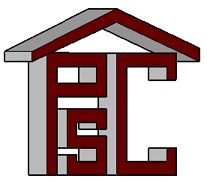A home inspection consists of nine key areas. Each of these nine areas includes several secondary components. For example, structure inspection includes foundations, floors, walls, columns, ceilings, roofing, and attics. A roofing inspection includes roof covering materials, drainage, flashing, skylights, and roof penetrations. However, as thorough as a home inspection is, some things commonly slip through the cracks. Let’s talk about some of those now, and discuss how you can avoid them during your next home inspection.
Faulty Appliances
Appliances are inspected to ensure that they are functioning properly. Appliances are full of moving parts. Unfortunately those parts may become defective at any given moment. An appliance that works perfectly for the inspection may break the very day the new owners move into the home. The seller has already been absolved of the responsibility to replace faulty appliances, so the repair or replacement immediately falls on the buyer. Unfortunately little can be done in this situation, and blame cannot be placed on the inspector, seller, or buyer.
Heating, Ventilation, and Air Conditioning
HVAC units fall through the cracks because technicians or inspectors may be reluctant to thoroughly test the heat on a hot day or the air conditioning on a cold day. Their reasoning isn’t that the ambient temperature is already too hot or too cold, they simply don’t want to risk damage to the unit by running it improperly during the wrong time of the year. Check the home inspection report to see if it contains a disclaimer that relieves inspectors of this liability.
Hidden from Immediate Sight
Inspectors inspect floors, carpets, and walls for damage or significant wear but they do not remove floor coverings such as carpet to inspect floor boards. If you’re concerned about potential issues lurking under the carpet, follow the inspector and ask questions along the way. You may also ask the seller’s permission to take a deeper look if you’re serious about purchasing the home and simply want to know that everything is safe and sound.
Hidden or Future Damages
The inspector cannot see into the future of course, but they may see issues with roofing, siding, or windows which could create problems in the future. Issues which fall outside the purview of the contract are not the seller’s responsibility. For example, slightly damaged siding that can lead to larger problems later aren’t required to be repaired before completion of the sell.
Avoid Mishaps with Your Inspector
The home inspector provides a service for both the seller and the buyer. Either party may request a deeper inspection into specific areas of the home’s structure. If you’re looking to buy a home in the Phoenix, AZ area, call us any time to schedule an appointment. We work seven days a week, and are here to serve you in your home buying or selling adventures.


Sorry, comments are closed for this post.